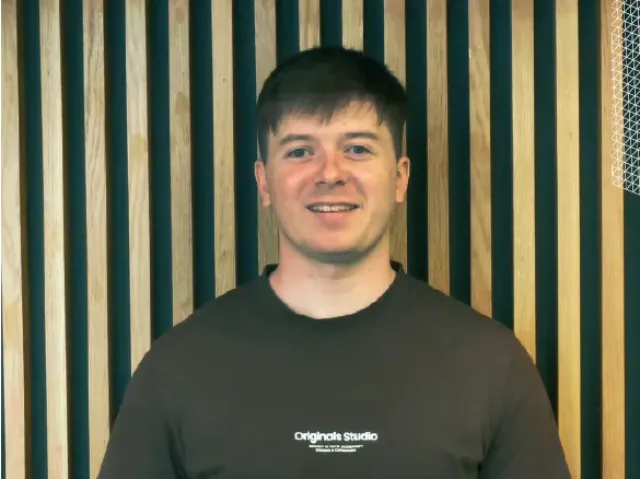View all Courses

Evan McDonnell
BSc (Hons) in Occupational Safety and Health

Tell us a little bit about yourself and what led you to choose your course:
I come from a family of eight, with three brothers and two sisters. We live on a suckler farm, where there’s always plenty to do. Farming is a huge part of my life—I even gave up playing football to focus on farming during the summers! When I finished my Leaving Cert, I wasn’t sure what I wanted to do next. I decided to take a year off to work and explore my options. During that time, I realized that while I enjoyed practical work, I wasn’t quite ready to leave home. Considering all this, I was directed toward Sligo and this course, which allowed me to commute daily (once we got past the COVID restrictions).
Tell us why you chose IT Sligo / ATU Sligo:
I chose ATU Sligo because it’s less than an hour from home, allowing me to help out on the farm in the evenings. After speaking with a guidance counselor from Swinford, who also works at ATU Sligo (Adette Gallagher), I learned about the course’s blend of practical and theoretical content, as well as its strong employability prospects. Another deciding factor was the high percentage of students who secure jobs before graduating.
What do you like about life in Sligo (people, food, accommodation, scenery, etc.)?
There’s always a great vibe around Sligo. The people are friendly, and there are plenty of options for food or a night out when needed. I’d choose Sligo over Galway or Dublin, not just because the traffic is much lighter, but also because everything is fairly compact and easy to navigate. Plus, Sligo is far more affordable!
What advice would you give to a student thinking about coming to Sligo?
There’s a lot to be said for choosing a college like Sligo. The courses are practical and provide you with numerous opportunities without limiting your options. From my experience, classes aren’t too large, and the lecturers know you by name. This is crucial because it means you’re not just a number—they genuinely care.
What specifically about the course do you particularly enjoy?
One of the highlights of the course is Enquiry-Based Learning (EBL), a module that you carry with you from first to fourth year. EBL is the core of this course, where the class is split into groups every few weeks to work on real-life problems or issues that a Health and Safety Officer might encounter. This approach helps students develop a range of skills, including communication, presentation, and management, while tying together the other modules. The course also includes several lab-based modules, such as wastewater labs, microbiology, and occupational hygiene, which provide a deeper understanding of the work involved in the field. Another aspect I particularly enjoyed was the work placement after third year, which opened my eyes to the reality of managing health and safety—it’s far more than just wearing a hard hat and carrying a clipboard.
If you were speaking with a first-year student about to start your course, what advice would you give them?
Don’t be afraid to ask questions—everyone’s in the same boat, and you’ll only benefit from it. Keep an open mind and don’t get bogged down by the workload. The modules are assessed in various ways, including quizzes, assignments, and exams, so there’s flexibility in how you can succeed. Attend classes, even if you’re not taking notes; you’ll be surprised by how much you pick up just by being present, including the language and terminology used. The effort you put in will be reflected in your progress, and the more you immerse yourself in the content, the easier it will come to you.
If you are involved in sports, volunteering, working, or have other passions you pursue outside of your academic life, can you tell us about that? Especially mention any Teams, Clubs, or Awards.
I’m not currently involved in any sports, but a passion I picked up before starting college—and pursued whenever I had time during COVID—is restoring and respraying old machinery and tractors. Growing up on a farm, I’ve always enjoyed seeing the transformation of tractors I knew as a child, which eventually led me to do similar work for other farmers in the area. It’s also provided me with an extra source of income for college.
What are your plans after graduating, and what are your long-term goals?
After graduation, I plan to continue working with the company where I completed my work placement, as they’ve kept me on. I’m also considering going abroad to work and experience other countries while traveling.

